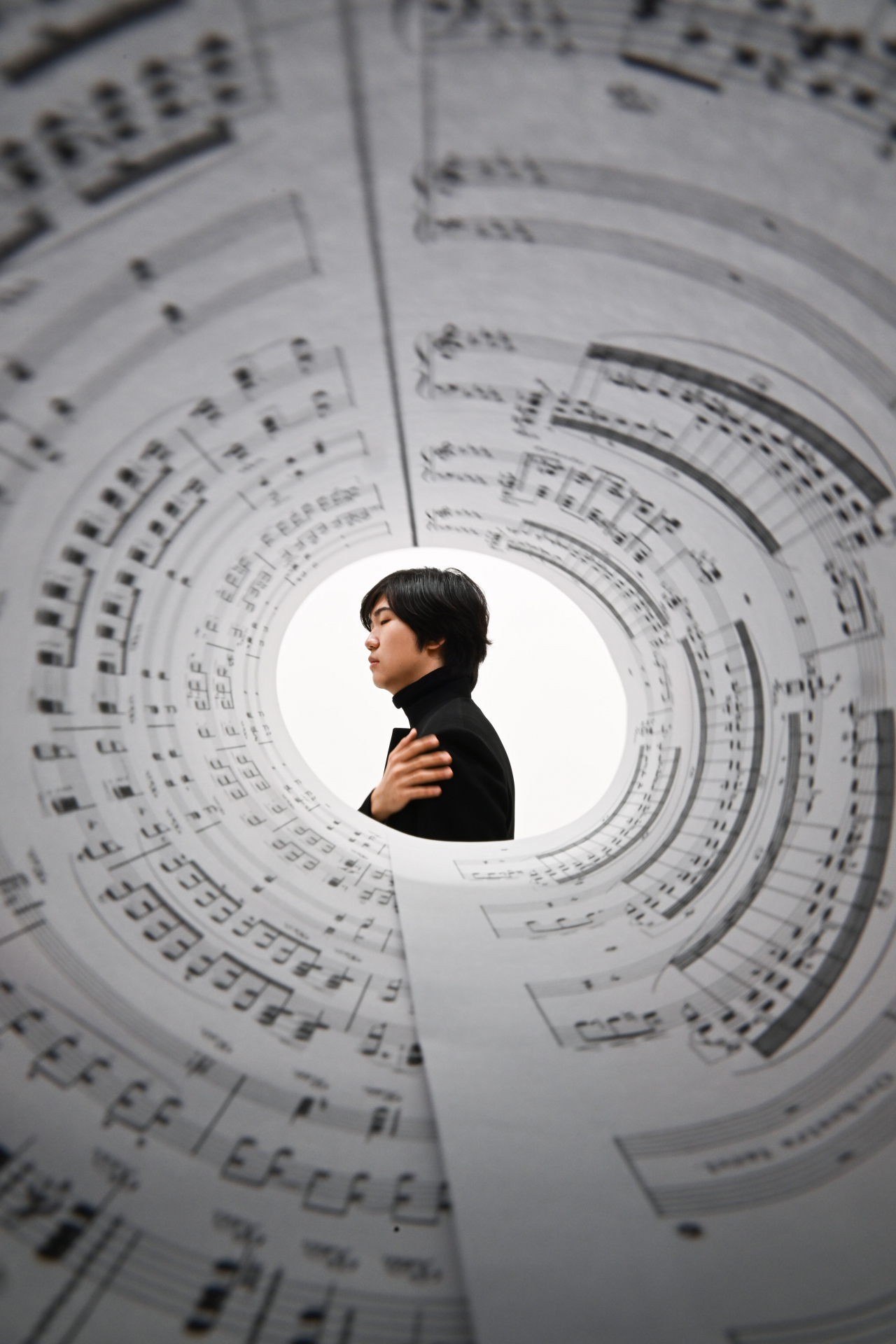 |
Pianist Kim Song-hyeon, the second place winner of the 2023 Isangyun Competition, poses for photos during an interview with The Korea Herald on Nov. 6 at Herald Square in Seoul. (Park Hae-mook/The Korea Herald) |
When pianist Kim Song-hyeon participated in the Isangyun Competition in early November, he saw the waters of Tongyeong and prayed to become tranquil just like the sea.
Before the final round, he re-read messages of encouragement from Paik Hae-sun, a prominent South Korean pianist and his teacher at the New England Conservatory. Paik, who had flown to Korea for her own performance, came straight to Tongyeong from Incheon Airport after a 20-hour flight to cheer on her student.
The 21-year-old performed Tchaikovsky’s Piano Concerto No. 1 in B-flat minor, Op. 23, the same piece for which Paik had taken home the third prize from the International Tchaikovsky Competition in 1994. Once Kim finished playing, a standing ovation erupted and he sobbed uncontrollably while exiting the stage.
“Participating in competitions is a high-pressure experience. The stage of evaluation adds to the intensity, as all my efforts over the past few months reach their end. When I saw the audience giving me a standing ovation, my emotions exploded,” Kim told The Korea Herald during an interview on Nov. 6.
Kim had left the Isangyun Competition empty-handed in 2019. This time, he demonstrated significant progress by exiting triumphantly with three awards, including the second prize and the Seong-ywang Park Special Prize, which was awarded by the Kumho Culture Foundation. The third prize is the UNESCO Creative City of Music Special Prize, which is decided by an audience vote, and is a type of award that he is familiar with. At the Sendai International Music Competition in 2022, he won both fifth prize and the Audience Prize.
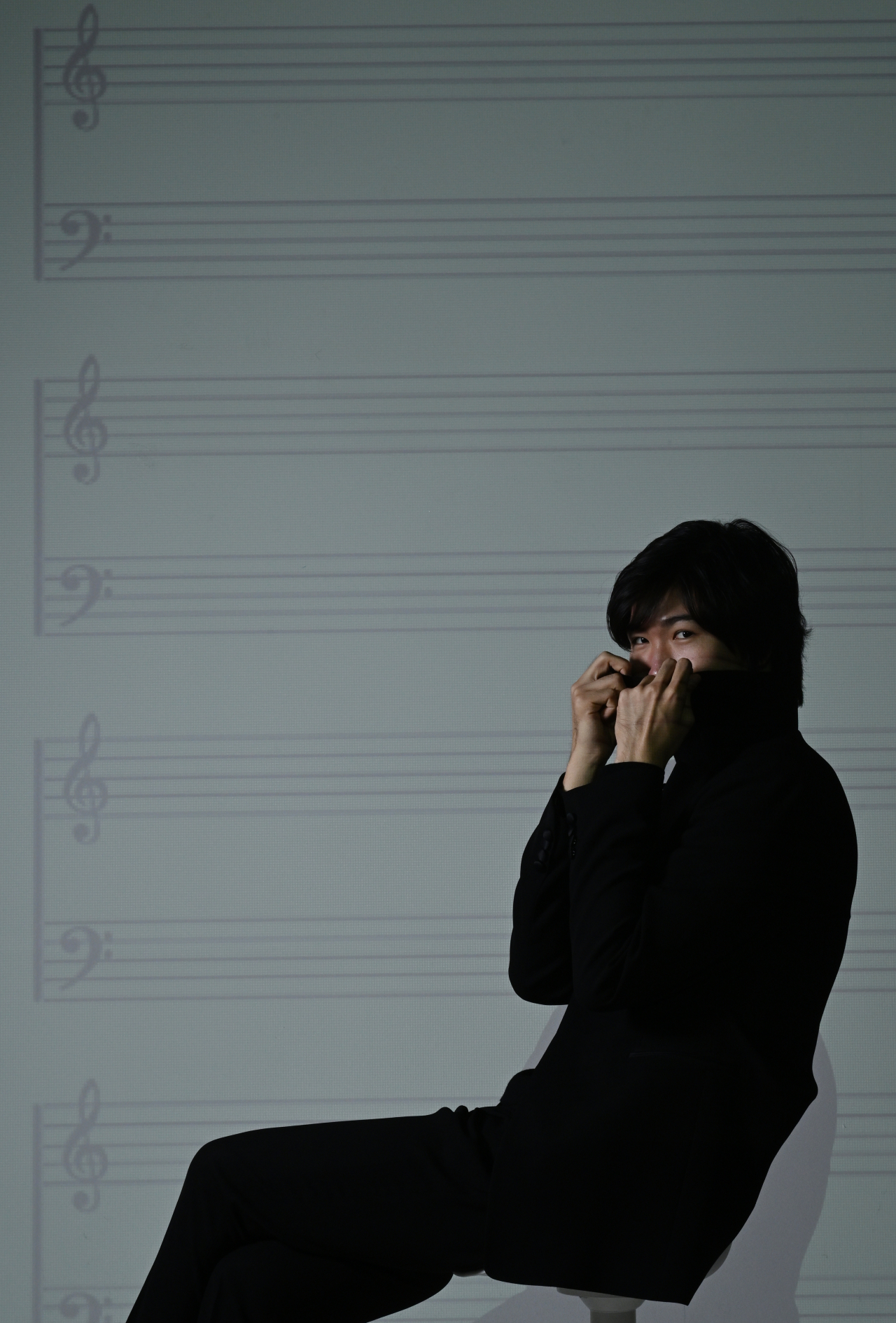 |
Pianist Kim Song-hyeon, the second-place winner of the 2023 Isangyun Competition, poses for photos during an interview with The Korea Herald on Nov. 6 at Herald Square in Seoul. (Park Hae-mook/The Korea Herald) |
So, what happened to Kim between the 2019 and 2023 competitions?
Kim said studying under Paik had been advantageous for him.
“During the COVID-19 pandemic, with the help of my teacher, I was able to focus on lessons and practice. In addition to her piano lessons, I learned a lot of life lessons from her -- from her devotion to music, her students and the people around her.”
Kim said he is so lucky to have met great teachers. Interestingly, his teachers are not strangers to each other.
His first teacher introduced Kim to her own teacher, who introduced him, in turn, to her teacher.
He was referring to Kang Hye-young, Shin Soo-jung and Paik. Kang’s high-school teacher is Shin and her college teacher is Paik. In addition, Shin, former dean of Seoul National University's College of Music, introduced Kim to pianist Lee Jin-sang. Right now, Kim studies with Paik, who is the reason he originally applied to the NEC.
“What I learned from her is to abandon my desire to express myself. ‘Music is greater than you. Once you realize that you can be free.’ So every time she teaches, she tells me, 'Don’t try to impress me. Just think about the music.'”
Perhaps Paik underscores this teaching while recognizing Kim as a young man endowed not only with a broad spectrum of interests but also with diverse talents.
Just like his idol, IU, the K-pop singer who sings, writes songs and acts, Kim loves writing, drawing, reading and taking photos, and when he was in elementary school, he was into inventing things and won several awards.
Perhaps because of the influences that he received both consciously and subconsciously, he also thinks about pursuing a teacher/performer career just like Paik.
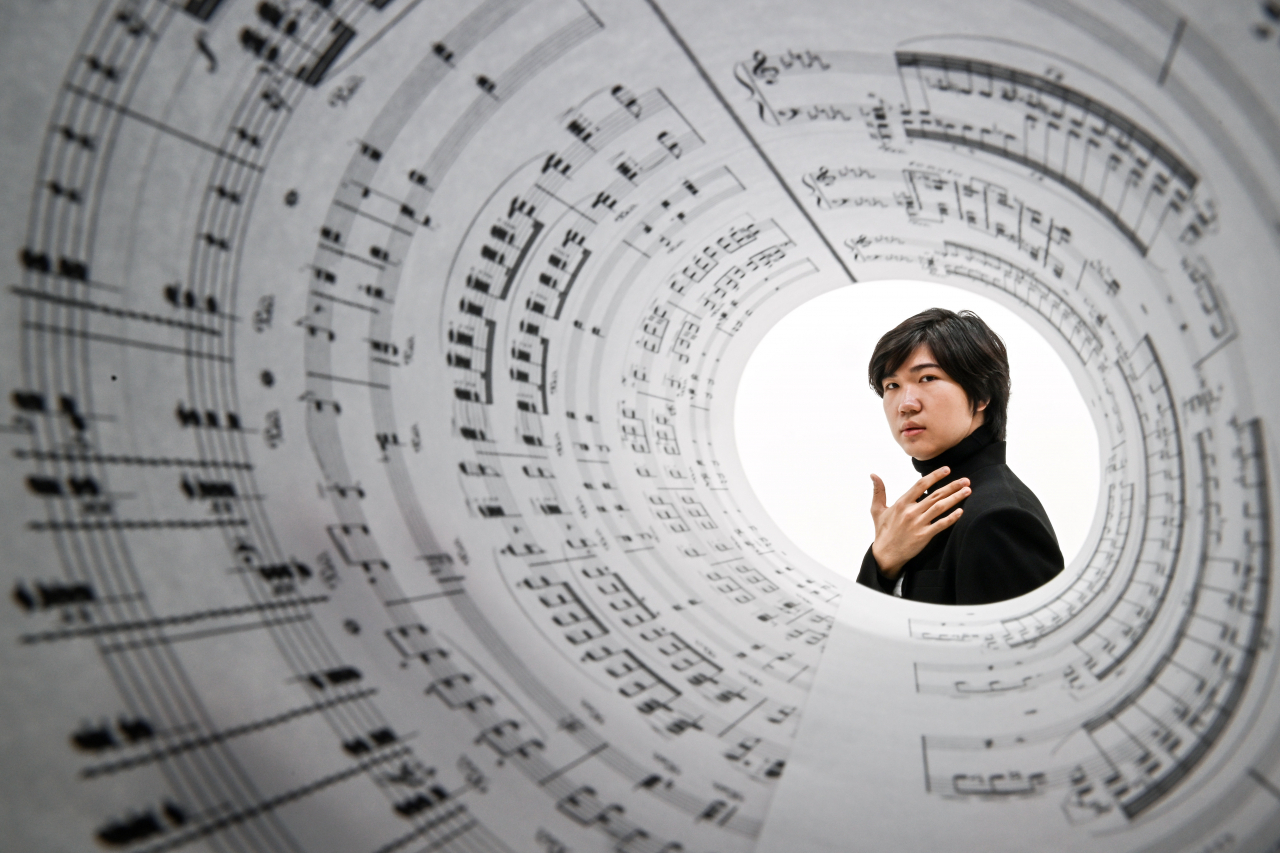 |
Pianist Kim Song-hyeon, the second place winner of the 2023 Isangyun Competition, poses for photos during an interview with The Korea Herald on Nov. 6 at Herald Square in Seoul. (Park Hae-mook/The Korea Herald) |
The audience prizes he received from the Isangyun Competition and the Sendai International Music Competition in the past two years and other stages where he experienced a strong connection with the audience made him lean toward discovering his potential as a concert pianist.
"At Sendai, I thought, 'Perhaps I have something to move people's minds,' and I could clearly feel the audience’s energy from the stage, which made me gain more strength and play with more vigor,” he added.
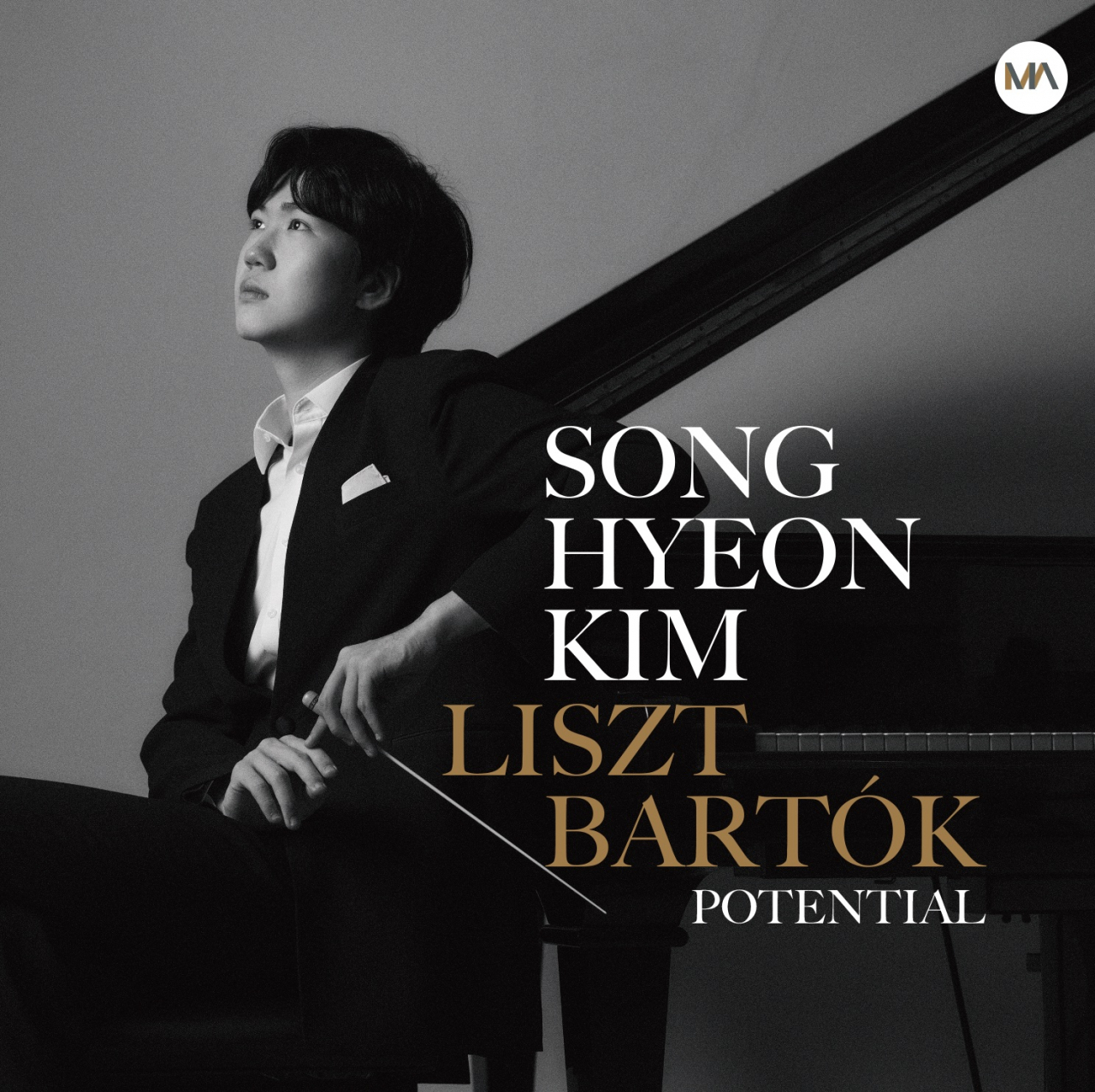
In his pursuit of both his personal potential as a pianist and potential of the piano, he would like to release an album each year, a plan that commenced with his debut album, titled “Potential,” which came out this month.
The album includes piano renditions of Liszt’s "Reminiscences de Norma," S. 394, and Bartok’s "Sandor Concerto for Orchestra," Sz. 116. Its release is timed to honor the premiere of Bartok’s composition on Dec. 1, 1944, in Boston.
“At this final, I realized performing and inspiring the audience gives me great joy. I have this growing desire to take the stage together with fellow pianists that I admire and become their peer,” he said, adding that Korean pianists Son Yeol-eum and Sunwoo Ye-kwon are his role models.
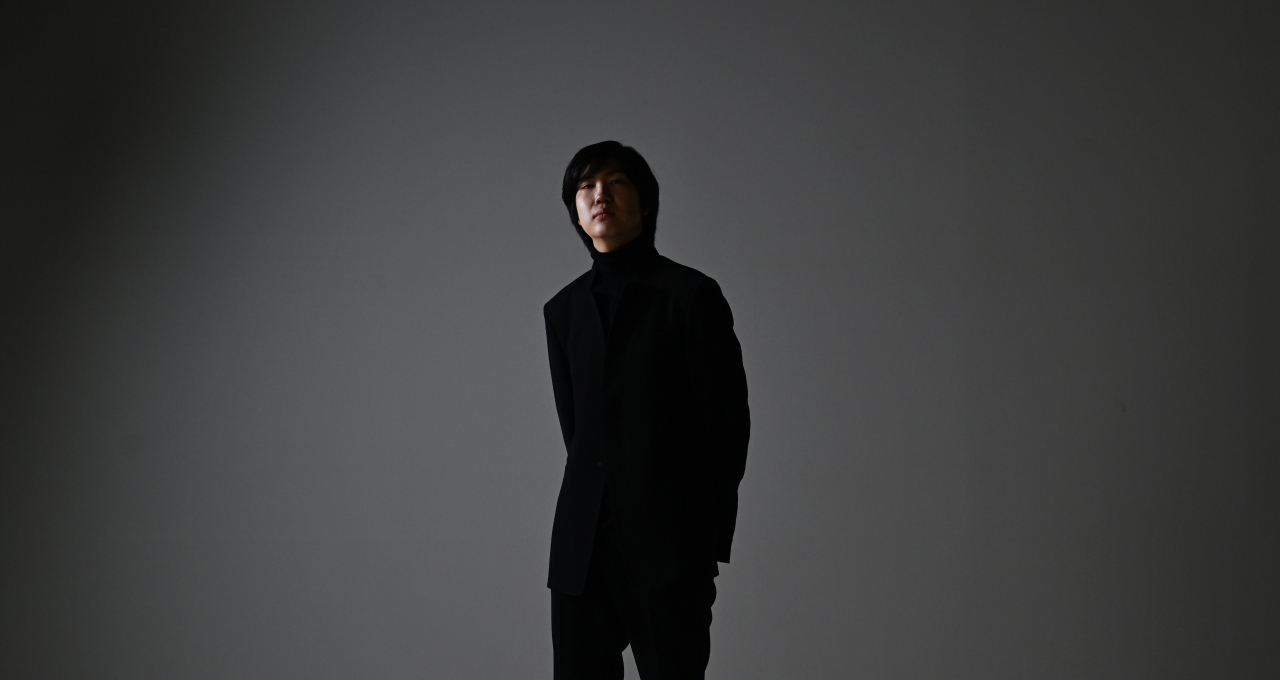 |
Pianist Kim Song-hyeon, the second place winner of the 2023 Isangyun Competition, poses for photos during an interview with The Korea Herald on Nov. 6 at Herald Square in Seoul. (Park Hae-mook/The Korea Herald) |
This article is the fourth in the "Rising Virtuosos" series introducing Korea's next generation of talented and accomplished classical musicians. The series will give readers an intimate look at the exceptional artistry and passion of young musicians who are making their mark on the international classical music scene. —Ed.







![[Today’s K-pop] Blackpink’s Jennie, Lisa invited to Coachella as solo acts](http://res.heraldm.com/phpwas/restmb_idxmake.php?idx=644&simg=/content/image/2024/11/21/20241121050099_0.jpg)